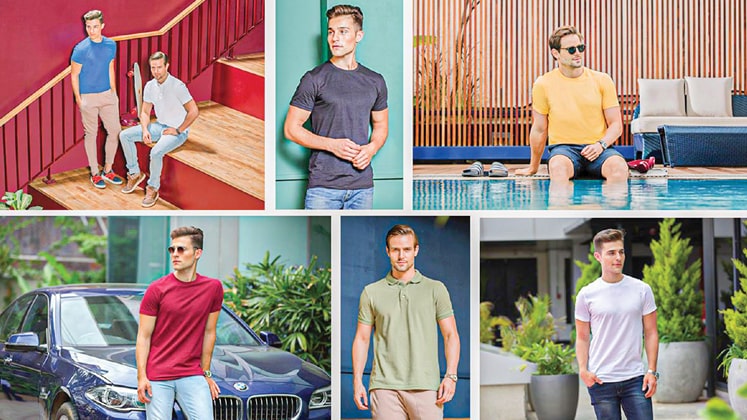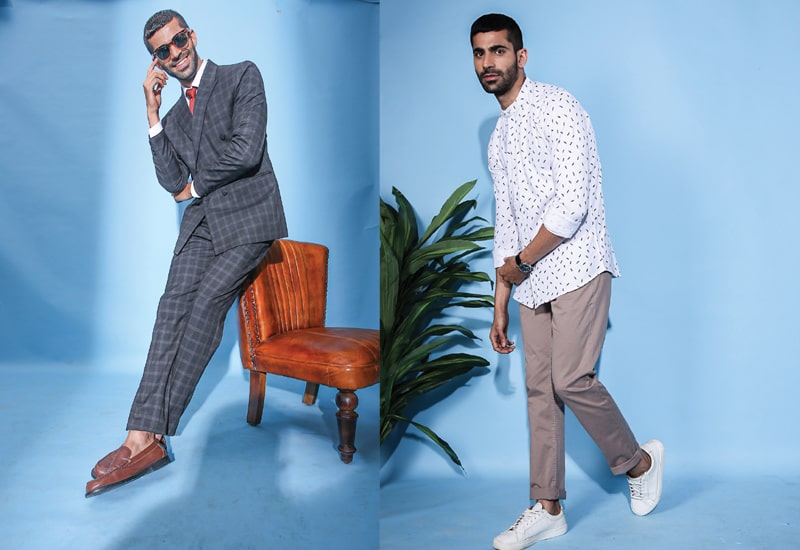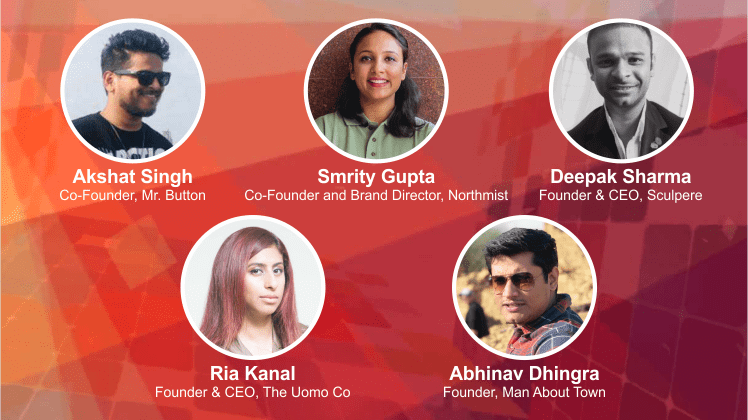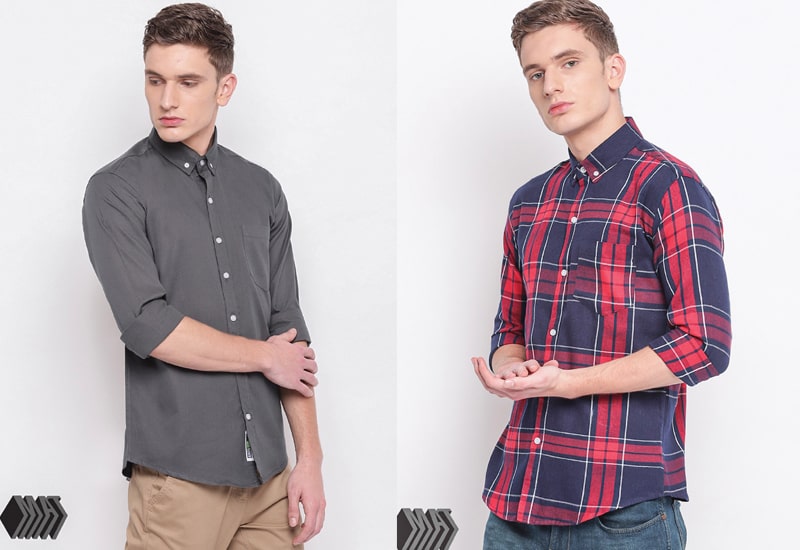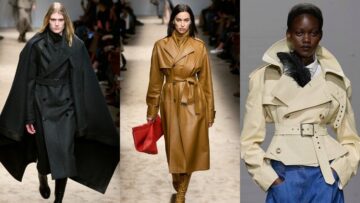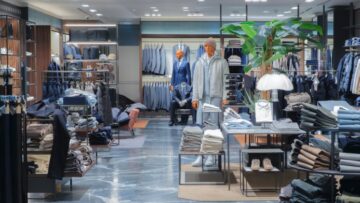The changing attitude of men towards fashion is redefining the menswear industry at a pace that is sometimes hard to keep with. From traditional sherwanis, tailored suits to stylish chinos and a plethora of shirt choices, menswear has established itself as one of the fastest growing segments globally as well as in India. Not only are brands and retailers foraying aggressively into the category, but many start-ups are also basing their focus on this segment, as it proves to be a viable business.
What’s more is the lucrativeness of the business that is pulling designers and brands alike to either diversify into the category or step up their menswear game. There are heavy-hitters like Celine, which in January 2019 released their first men’s collection in the brand’s 74-year history under Creative Director Hedi Slimane, and Prabal Gurung, debuted its first men’s collection in September 2018 after nearly a decade in business. Similarly, international fast fashion giants like Zara and H&M have recorded growth comparable to many womenswear brands.
The same is evident from the numbers from the past few years; menswear sales amounted to about US $ 27,672 million in India in 2018, according to Statista. Their reports also suggest that the menswear space will show more growth than womenswear for the year 2022, as revenue growth percentage for menswear is expected to rise from 9.86 per cent in 2020 to 12.75 per cent in 2022, while womenswear is projected to be at 12.35 per cent for 2020 and 10.3 per cent for 2022.
The need to adopt ever-changing fashion aesthetics as well as high disposable incomes can be credited for the shift in the industry. From bespoke and tailored services, casual and loungewear brands to formals, there are endless formats, brands and products catering to the needs of the modern men.
“The current state of menswear is very competitive yet dynamic. With more and more customers going digital and well-connected over internet, the demand for cool and trendy menswear is increasing exponentially. It brings upon a huge potential for brands to foray into this ever expanding market. A brand with right assortment and apt pricing can make its presence felt. Marketing with a great story will surely help one, to create a niche,” said Akshat Singh, Co-founder Mr Button.
Foraying into new categories and markets
While most start-ups are driven by the urban population, in recent times, men from all over India have woken up to how they can achieve the dapper looks they so often see on influencers and celebrities. It is no surprise that the stylish menswear segment is spreading its wings to reach corners it had never considered viable before.
“The menswear market in India is definitely expanding. More independent labels and companies are growing due the increase in the segment’s demand. After all, it’s a US $ 16 billion market. The prospects of growth depend on the target market and its conscious consumers and the potential of Tier-2 and Tier-3 cities are quite high. We have loyal customers shopping from us in repeat due to our constant content stories with bloggers and a few celebrities. Our customers all over India find us to be an accessible brand at decent pricing. There are many opportunities for menswear start-ups, as long as the textile, manufacturing and funding process is in order,” commented Ria Kanal, Founder and CEO of The Uomo Co, an effortlessly stylish menswear brand, explained.
With products based on in-depth visual research and vision by Ria Kanal herself, The Uomo Co has a penchant for elevating even a basic shirt with effortless detailing that stands out. The venture has aimed at reinventing the styling wheel for menswear through sartorial details. Further, on being asked if she would want to diversify into womenswear, she added that she finds the market too saturated for its own good.
Mr Button, with its trendy collection of blazers, shirts, t-shirts, Nehru jackets, kurtas, is a menswear brand that has made quite the name for itself and is also of the same opinion. Akshat Singh said, “We did not foray in womenswear as we were driven by passion for menswear and to fill in the gaps of quality menswear with the right fit. Menswear is still evolving and we believe it’s the right space to be in.”
The consensus from most holds true on the subject. While womenswear is a market that has for long seen innovations like rentals, bespoke and styling, menswear market has only recently opened up to embrace these opportunities. The fact to note is these innovations for menswear might be ripe in metropolitans but the cities outside are still grossly lacking in services.
Around 66 per cent of the country’s population lives in the Tier-2 and Tier-3 cities. There are huge opportunities for organised retail brands with competitive price points. Competitive pricing is the key operative term for towns, especially relating to current times when consumers have to be pulled to buy products. Creating quality with the right price is what can help a brand establish its market with Tier-2 and Tier-3 cities, where there is no dearth of demand, just of the right supply.
Impact of COVID-19
The menswear market, even with all its potential, is as hard hit by the pandemic as any. With consumers shifting online, many start-ups that earlier focused on offline expansion are struggling to make their space in the online world while others are simply waiting for the worst to pass so that the Indian consumer can stop preserving cash and spend on things other than absolute essentials.
“Impact is big from all sides of business. Sculpere’s offline segment has been badly hampered due to COVID-19, and this financial year will be a challenging one as consumer behaviour has completely changed,” said Deepak Sharma, Founder and CEO of Sculpere, an Indian luxury menswear brand founded in 2018. The brand, which had a turnover of approximately Rs. 1 crore last fiscal, offers exclusive RTW and Bespoke services consisting of apparel, accessories and shoe.
However, the company’s efforts to make the best of this time have not been deterred. Sharma added, “We are currently working on new digital web projects to provide maximum comfort to our consumers at their convenience. We are launching AI-based 3D platforms next month, and an AI-based app and web tool to provide private lifestyle assistance. Through this tool we will provide real time suggestions related to lifestyle queries. COVID-19 gave us a new normal which has resulted in a significant impact on the market, individual buying pattern and – most importantly – the shift to digital. Post-COVID-19 demands will be same but supply and services have to be tech driven. After all new markets do not emerge, nor do they appear. They are made by the activities of firms.”
The pandemic has deeply affected the entire demand and supply cycle, and brands are forced to re-strategise to make up for the lost sales. Touching base with consumers frequently and innovating will forge the path ahead.
Northmist has for long been a champion for sustainability with organic t-shirts for men, but is now struggling under the ramifications of the outbreak. “Our primary segment of menswear has seen a dip in market share. With so many job losses and unpredictable income, people are purchasing less apparel for sure; having said that, we see huge opportunities for homegrown brands.
Also, with promotion of “vocal for local” there is hope for local brands like us. If we can stay relevant and provide innovation in the apparels segment then there is a market waiting for us. Also, consumers are now going to look more closely for ethical brands and there is a conscious transition happening towards it,” averred Smrity Gupta, Co-founder & Brand Director of Northmist.
The Way Forward
It is almost certain that consumer buying patterns will change with various post-coronavirus repercussions like more of work from home trend and occasions and weddings with limited gatherings. Therefore, it’s imperative for brands to make tweaks in terms of assortment planning and offerings. Customer’s consumption pattern will now be more need-based rather than demand-driven. A brand’s communication also needs to be changed in order to maintain brand recall which is not too pushy during such times.
“In fact, a brand’s communication strategy is the most important tool to grow in business as of now. With orders stalled and consumers preserving cash, the only way to make them remember your brand is by showing you care. The market will turn around if not now, then in the near future, and all that will remain is how you dealt with the downs of the pandemic and managed to maintain a healthy relationship with your consumers,” affirmed Abhinav Dhingra, Founder of Man About Town, a menswear brand with a penchant for classic as well as trendy shirts for men.
Even as plans for expansion have come to a halt, brands like Sculpere are focusing on online expansion while keeping the option to open an exclusive store in Delhi NCR in the pipeline. Opening flagship or exclusive outlets gives a brand an exceptional amount of control over the customer experience offered. As consumers are growing more conscious of who they choose to shop with, the right consultations along with safety measures could very well be the deciding factor that makes or breaks a brand’s offline business.
Other than this, online expansion also comes with its variety of offers. The Uomo Co, which is already retailing through its website and on MensXP, is looking for more unique opportunities to expand. “We would like to be a part of online stores that deal in innovative menswear. We would love to expand to the international market as we keep getting orders from abroad,” says Ria. This puts into perspective how innovation in the field of marketplaces could be an epitome of customer segmentation, another necessity in the day and age of a surfeit of options on the likes of Myntra and Amazon that make shopping for your choices all that harder.

